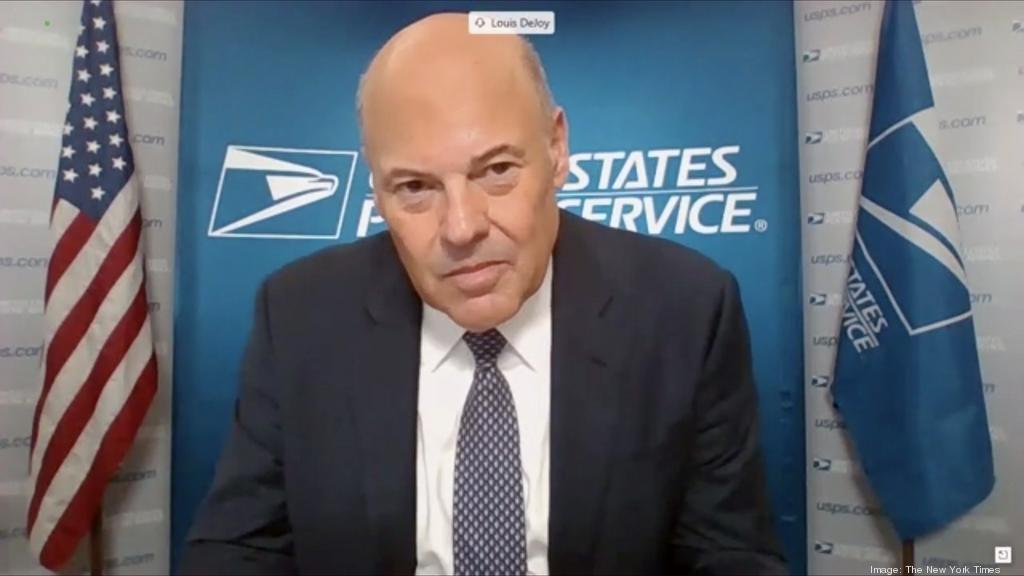Article originally published in the Philadelphia Business Journal on August 24, 2020.
As we approach Election Day, our most basic Constitutional right – the right to have our votes counted – is being challenged. A study published by Pew Research on Aug. 13 indicates that nearly 50% of all voters feel it will be difficult to vote in the November election, a shockingly high percentage.
Due to concerns over COVID-19 exposure, many people are afraid to vote in person and many poll workers have declined to work on Election Day, forcing the closure of many polls, causing travel difficulties for the elderly and long lines at those locations that are open.
With a reduced number of polling locations throughout the nation, voters are being encouraged to vote by mail, a time-honored tradition supported in the past by both Democrats and Republicans alike for absentee voters. In a number of states, citizens can vote by mail for any reason.
The United States Postal Service (USPS) has issued a warning that for the Nov. 3 election, it may not be able to deliver ballots in time without additional funding. Trump has publicly stated that he will not provide extra funds to ensure the timely delivery of ballots by the USPS, a violation of the right of citizens to vote, a right enshrined in the Constitution.
In a lawsuit against various aspects of voting by mail brought by the Trump administration, federal judge Nicholas Ranjan, a Trump appointee, ordered the Trump campaign to present evidence that voter fraud had occurred in previous elections. On August 21, only insignificant sporadic evidence of voter fraud was presented by the Trump campaign to the court.
Voting by mail has worked well in every election, with a miniscule number of fraudulent votes cast. However, Trump continues to claim that a significant number of vote-by-mail ballots are fraudulent but never presenting real evidence to back up his allegation. If Trump was so concerned about voter fraud, he should have proposed mechanisms to prevent it.
In May 2020, the USPS Board of Governors appointed top Republican donor Louis DeJoy as the new USPS Postmaster General and CEO. Rather than gear up for the expected onslaught of ballots by mail, DeJoy announced cost saving measures that jeopardizes the ability of ballots to arrive on time to be counted.

Why didn’t DeJoy suspend cost saving measures until after Nov. 3? Due to intense pressure, on Aug. 18, DeJoy said that cost saving measures will be delayed until after the election. DeJoy should also announce that he is reversing those saving measures recently implemented and increasing the resources needed by USPS to deliver ballots on time. In the private sector, successful companies strive to give their customers a great customer experience. USPS should strive to give voters a great voter experience.
On Aug. 21, DeJoy testified in front of the Senate Homeland Security and Governmental Affairs Committee that processing of ballots would take priority.
So, if the pandemic has caused a reduction in the number of polling locations and the timely delivery of ballots by USPS is in jeopardy, how can voters’ rights be ensured? State and local governments must step up to fill the void.
What governors can do
As leaders of their states, governors need to build confidence in their county election systems. They need to issue executive orders to ensure voting by mail goes smoothly and outline the procedures that local election officials need to follow to ensure all ballots are legitimate. This is important to protect against charges of fraudulent votes which are sure to come.
What local officials can do
Local election officials need to hire a sufficient number of trained workers to check mailed-in ballots to ensure they are legitimate. Election Day processes at the polls need to be tested and re-tested through the eyes of voters so shortcomings can be fixed beforehand.
With the reduction in polling locations, mayors and local election officials need to ensure that the polls that are open are staffed properly to enable voters to vote without undue delay, including extended hours. If the norm is two voting machines or kiosks at each location, they need to increase the number to three or four to avoid long lines. The financial resources needed to accomplish this is of the highest priority.
What we all can do
We all need to take proactive steps to ensure our vote is counted. If you decide to vote by mail, mail in your ballot as early as possible. As an alternative, you can avoid the USPS and drop your ballot off at locations designated by local voting officials.
We also need to hold the president, our senators and congressmen accountable for any attempt to disenfranchise our right to vote, which is an attack on our democracy.
The Committee of Seventy is a Philadelphia-based nonpartisan organization that advocates for effective government through citizen engagement and public policy advocacy. I recently had a conversation with David Thornburgh, the organization’s president and CEO, who said, “It’s time to let our legislators know we expect them to step up to the plate and ensure that they do what is necessary to ensure our most fundamental Constitutional right – the right to vote and have our vote counted. This is a non-partisan issue and deserves support regardless of political party.”
If our federal government leaders will not ensure our most fundamental Constitutional right, it is up to our state and local government leaders to do so. It is also up to us to do our part.
Stan Silverman is founder and CEO of Silverman Leadership and author of “Be Different! The Key to Business and Career Success.” He is also a speaker, advisorand widely read nationally syndicated columnist on leadership, entrepreneurship and corporate governance. He can be reached at Stan@SilvermanLeadership.com.

